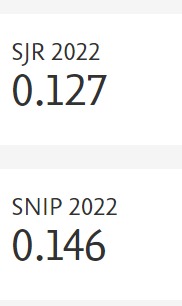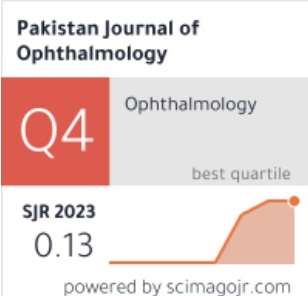Corona Virus Nanoparticles and Enhanced Respiratory Protection for Outpatient Ophthalmic Practice
Doi: 10.36351/pjo.v36i3.1079
DOI:
https://doi.org/10.36351/pjo.v36i3.1079Keywords:
Personal Protective Equipment, respiratory protection, Ophthalmology, COVID, Infection control, Public Health EnglandAbstract
The Covid-19 pandemic has emerged rapidly and is now part of our everyday life and work. At the time of writing this editorial all routine clinical activity and surgery that had previously been stopped is set for a phased reopening over the next 6 weeks to 6 months. Ophthalmic examination includes close working distance to our patients at the slit lamp (<20 cm). Many nasolacrimal outpatient procedures can easily convert into droplet infection and even aerosol i.e reflux from lacrimal washout. In addition, many slit lamp based procedures and examinations can lead to prolonged exposure and in some cases even aerosol generation. Thus loosely fitted surgical masks, despite their electret filter to trap nanoparticles may offer little or no protection at all. Evidence is overwhelming that ophthalmologists need enhanced PPEs including surgical cap, gown, fit tested mask, gloves and goggles for all ophthalmic examinations. Hesitation in implementing new PPE guidance for ophthalmology will probably cost lives. An overview of the use of PPE is discussed in the following paragraphs.






